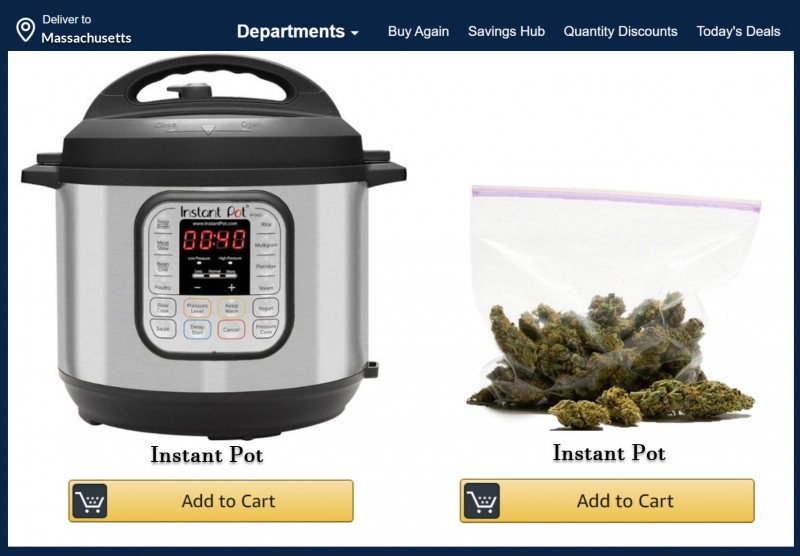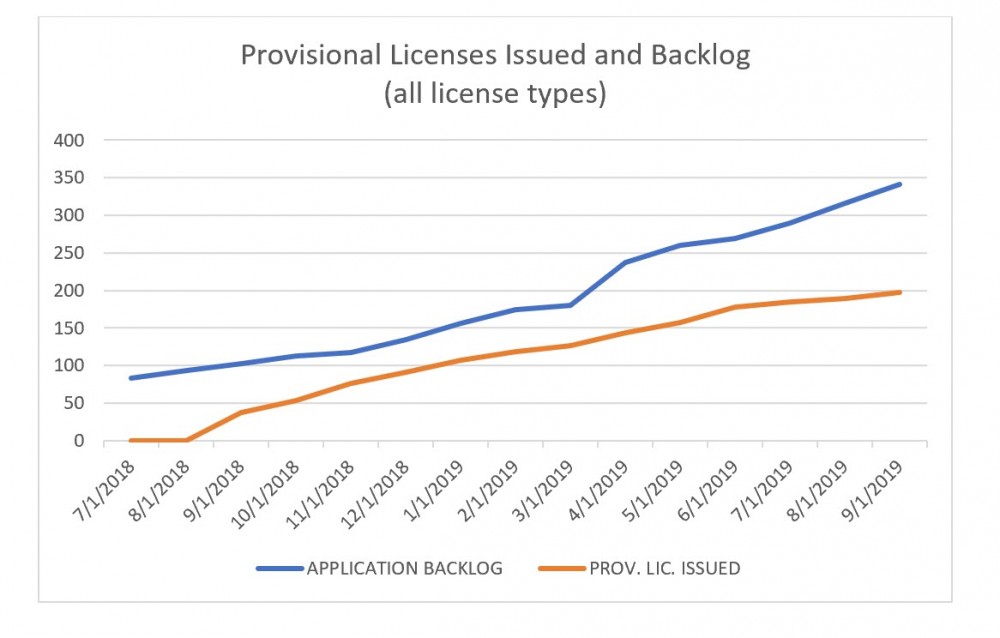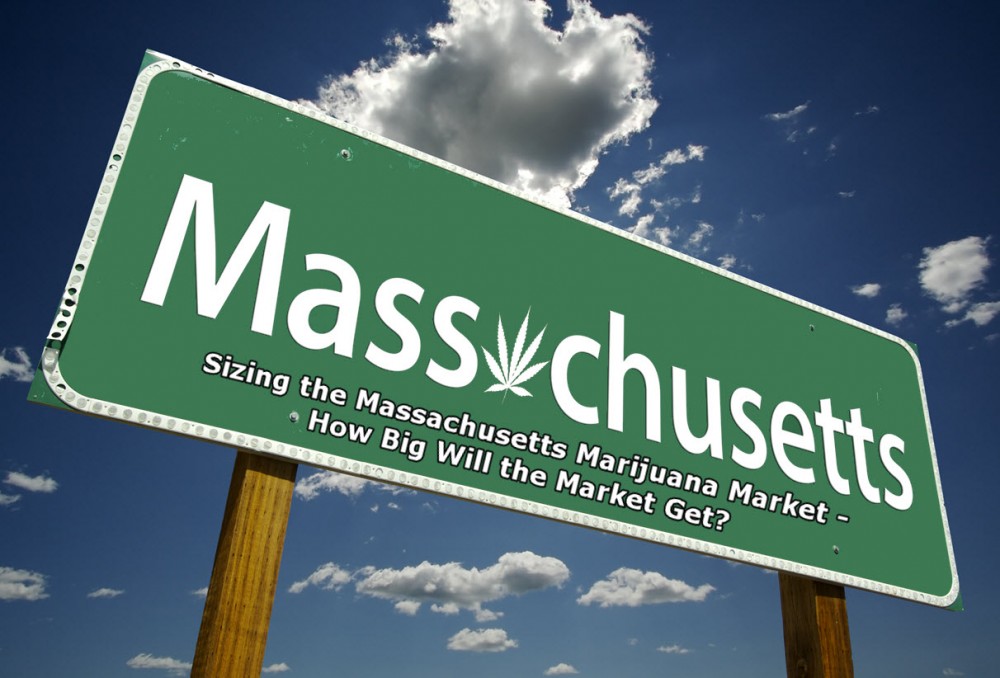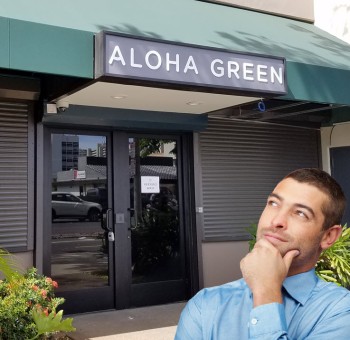The End is Near - New Cannabis Delivery Licenses Will Cause Massive Disruption in the Marijuana Industry
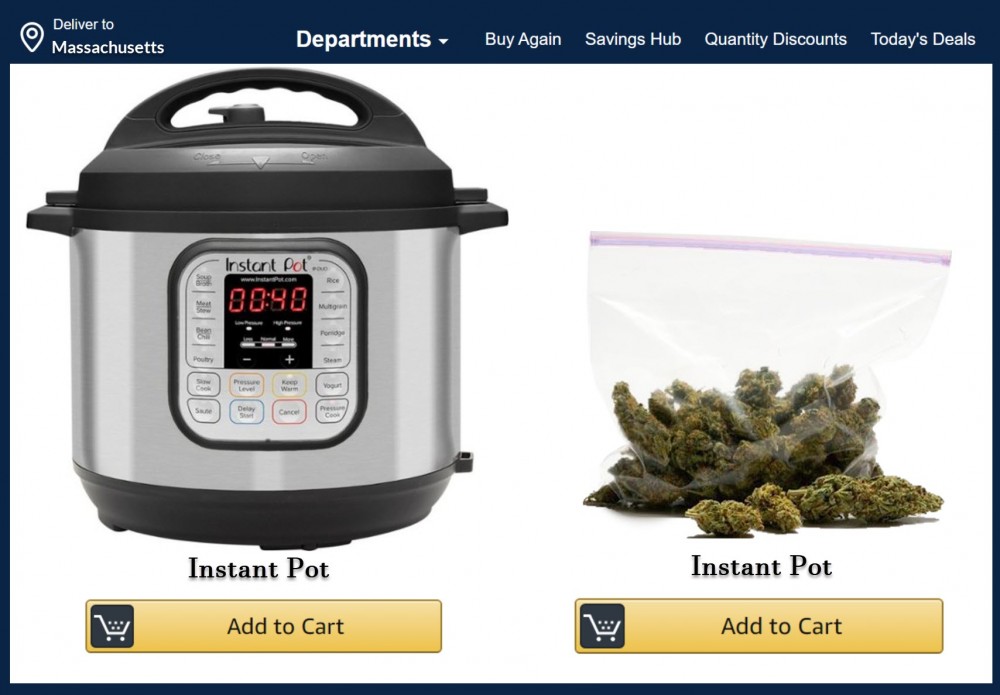
New licenses being issued in states like Massachusetts will upend the current marijuana industry.
While many articles and streaming hours have been devoted to such ideas as whether we will see cannabis legalization in 2021 with a new president, or whether marijuana will help or hurt Democrats at the polls this November, there is a much larger and stealth threat to the current cannabis industry as we know it.
Delivery licenses with large “moats”, as Warren Buffet would describe them.
Wait, I thought we already had delivery licenses in legal states and brick-and-mortar dispensaries are doing just fine?
Meet the social equity or economic empowerment delivery license as issued by the state of Massachusetts. Now, I am not saying the groups getting access to these licenses first are not deserving in a historical sense or economic sense, I am only looking at how the license will change the operational structures of current cannabis dispensaries and cultivators.
The new Massachusetts delivery licenses are for SE or EE applicants only (social equity or economic empowerment) and the winning applicants are being given a 3-year exclusive window for deliveries in Massachusetts. The original drafting of the license was not that threatening to current dispensaries and groups because it made the new delivery licenses essentially have to buy product at retail prices, mark up the price, and then try to sell cannabis at retail plus mark up. With current Massachusetts prices some of the highest in the country, when you factor in the taxes, that did not seem like a viable threat to the industry or much of a bargain to consumers.
Then the world changed. The CCC of Massachusetts changed the rules and will now allow these exclusive licenses to be able to buy at wholesale and sell at retail.
Game changer.
Game. Set. Match.
The Cannabis Control Commission of Massachusetts just created a legal, mobile dispensary that costs 1/100th of the cost of a brick-and-mortar dispensary and will have 1000% higher margins. They will also have a clear customer service advantage by delivery alone, one-click and weed comes to your door a few hours later.
What is a Moat?
Warren Buffet loves industries that have natural or government-created moats. Moats, in this sense are any unusual hurdle a business would have in creating competition with another business. Essentially, a business is not copiable just by writing a big check, whether through regulations, laws, or having a long history, one could not just copy or create a competitor overnight.
The moats enjoyed by these new licensee holders revolve around time and price. A 3-year exclusive window is a massive head start in winning market share and customer loyalty without any legal competition. If a license is awarded in late 2020, and the new company does a delivery on April 1, 2021, you are looking at non-exclusive rights ending on April 1, 2024! That is coming up on the next presidential election, not this one in a few months.
The second moat is pricing and margin flexibility. Brick-and-mortal dispensaries have spent millions of dollars to get locations open in Massachusetts when you factor in the real estate, lawyers, landlords, licensing, grow facilities and the list goes on, not to mention the current IRS tax codes that greatly hamper a cannabis company from being super-profitable right out of the gate.
The new delivery licensee will not be spending a dime on store fronts, landlords, employees, rent, and cultivation. While there will be a few employees and the inventory will need to be stored somewhere, the cost savings from opening with just a few delivery vans and drivers is massive.
The margins will destroy brick-and-mortal dispensaries. The cost of buying wholesale and delivering at retail prices will be pennies on the dollar compared to how current brick-and-mortar dispensaries are doing it now. Those extra margins and profitability early in the business cycle will allow for massive reinvestment into customer acquisition and loyalty over the 36-month exclusive window.
Massachusetts just created the first few “Amazon’s of Weed”, at least in their embryotic stages. Now the battle will become who can get the orders the fastest and cheapest. Internet traffic will be one of the key pegs in the building of a delivery empire. Ordering will all be done on mobile sites and apps with these new licensees within 6 months of opening. Just like those Amazon-branded vans delivering your paper towels and Insta Pots (no pun intended), new SE and EE delivery license vans will be dropping off your Blue Dream 8th and pack of Wanda gummies.
The current establishment of the marijuana industry has been warned, your margins are their opportunity as Jeff Bezos once said.
9/26/2020 - Rebuttal from a "Friend", ha!
Backup and Drop that Joint
Thom Baccus
Cannabis.net
Dear Mr. Baccus,
I read with interest and intrigue your recent article, aptly titled, “The End is Near - New Cannabis Delivery Licenses Will Cause Massive Disruption in the Marijuana Industry,” extolling the advantages of Massachusetts’ Golden Goose of all marijuana licenses, the independent home delivery license. I refer to this curious step-child of the licensing process as I do because the Commission cannot seem to settle on a name that properly reflects what the license is all about.
You are correct that this may in fact become the most valuable license class. However, Mr. Baccus, I urge you to back-up on some of your other claims.
When I physically visit a dispensary, I visit a budtender, select products, and complete the sale. One on one. Mano o mano. In and out in under 5 minutes. If I order online, someone must receive the order, someone else packs it, and my Mano o mano time with my favorite budtender is likely under 2 minutes.
You suggest that the Massachusetts Cannabis Control Commission’s newly created, legal, mobile “dispensary” will cost 1/100th of the cost of a brick-and-mortar dispensary and will have 1,000% higher margins (yes, you did state 1,000%). The online business may need less space, less expensive space (per SF), and no fancy buildout, but consider staffing.
When you place an order online, it is received and verified by an order processor, handed to a packer who fills the order, then packaged for a delivery route where a two-person team in a security-enhanced vehicle will delivery the product, while maintaining contact at prescribed intervals with a dispatch agent.
Estimated numbers of daily deliveries per team varies, depending upon who you speak with, from 16 to 32. I tracked down and spoke with some folks from Northern Herb (Google it). They were an unlicensed operator with a reported 25 driver pool. They know the ropes (and now the handcuffs). That translates to 15 to 30 minutes per order.
So let’s compare:
Walk-in 5 minutes 1 budtender
Advance order 2 minutes 3 staff
Home delivery 30 minutes 5 staff
The walk-in retail store may have a higher facility cost, but should certainly enjoy a lower labor cost. Where one budtender might serve 90 customers a day (5 min per customer x 12 per hour x 8 hours per day, less (2) 15-minute breaks), one two-person delivery team will delivery approximately 24 orders a day. It will take them 4 days to serve as many customers as one budtender can in a single day.
To thrive, the home delivery licensees will need larger operations to achieve the economies of scale. That will certainly take a bit out of the total market and will leave brick and mortar network that will be generating, on average, around $3.75 million of sales per store, per year.
The new delivery licensee will likely spend less on store fronts, landlords, and rent, but will have a higher amount of staff and will be paying for the operation of a lot of vehicles (unlike an Uber model, cannabis delivery vehicles must be owned or leased by the delivery business and cannot be owned by the driver). Hence, the cost savings might not be as massive as you anticipate.
The margins competition from these new home delivery licensees will take a bite out of brick-and-mortar sales and could force some stores to close. Others might regret all the wasteful monies poured into fancy build-outs and retail displays.
On a closing note, Mr. Baccup and drop that joint, expect stores that have a delivery license to deliver in a few hours, like Domino’s. Expect the bulk of direct-selling home delivery licensees to act like a dry cleaner – order by 10, delivered today, otherwise next day for most of the population and second day for the more rural areas of the state (northwest) that have few higher speed, limited access roadways (95, 495, 128, 2, 195, 295, 3, 6, etc.).
The license might not be quite as lucrative as you proffer, but it will likely be the most valuable license class. Should we apply for one?
Best Regard
Yellow River Home Delivery, LLC
I.P. Daily, CEO
WEED IN MASSACHUSETTS, READ THESE...
HOW CANNABIS LICENSING WORKS IN MASSACHUSETTS, CLICK HERE.

